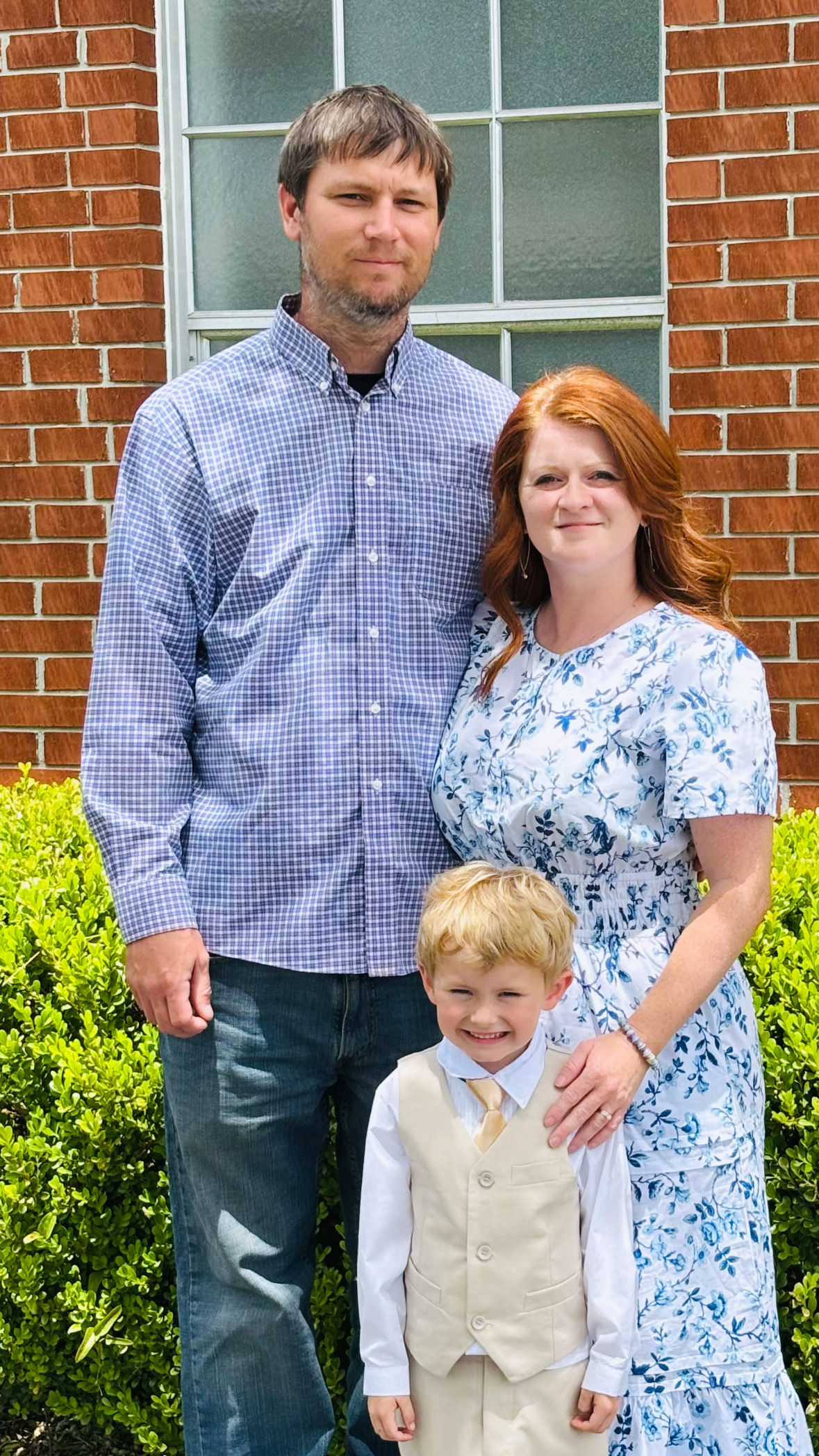
Simply The Church
We are a group of imperfect people striving to be the Church we read about in the New Testament.
Our MISSION is to LOVE GOD. LOVE PEOPLE. MAKE A DIFFERENCE.
We started out as a small group meeting in our homes...
Leadership
Our Values
These values are the glue that helps us live out the mission of our church.
Love God
Mark 12:29-30
We are called to love God with all of our Heart, Soul, Mind and Strength
Love People
Mark 12:31
By making everyone feel welcome through showing them the life-changing love of Jesus
Bold Generosity
Luke 6:38 & 2 Corinthians 9:11
Through selflessly and sacrificially giving to bless others and to further the work of God
Big Faith
Ephesians 3:12 & 2 Corinthians 3:12
A commitment to a bold faith and big ideas. We will trust God by taking big steps of faith so we can watch him work in extraordinary ways.
Intentional Community
Acts 2:42 & 46
We started as a micro church and we will keep the micro church mindset no matter how large we grow. We will do this by fostering genuine connection and accountability through small groups and personal relationships
Have Fun
Ecclesiastes 8:15
Show others the fun and joy of serving Christ. We will laugh hard, loud, and often. There is nothing more fun than serving God with the people you love.
Contributors Not Consumers
Mark 10:42-45
The church does not exist for us! We are the Church, and we exist for the world!
Integrity
2 Corinthians 8:21
We will honor Christ and His church with integrity. We will show integrity in everything we do. If we live with integrity, nothing else matters. If we don’t live with integrity, nothing else matters.
Authenticity
Luke 12:2
We will be true to who we are.
Next Generation Focused
Psalms 78:5-7
We will invest in our children, youth, and young adults to empower the next generation of future leaders.
Love God
Mark 12:29-30
We are called to love God with all of our Heart, Soul, Mind and Strength
Love People
Mark 12:31
By making everyone feel welcome through showing them the life-changing love of Jesus
Bold Generosity
Luke 6:38 & 2 Corinthians 9:11
Through selflessly and sacrificially giving to bless others and to further the work of God
Big Faith
Ephesians 3:12 & 2 Corinthians 3:12
A commitment to a bold faith and big ideas. We will trust God by taking big steps of faith so we can watch him work in extraordinary ways.
Intentional Community
Acts 2:42 & 46
We started as a micro church and we will keep the micro church mindset no matter how large we grow. We will do this by fostering genuine connection and accountability through small groups and personal relationships
Have Fun
Ecclesiastes 8:15
Show others the fun and joy of serving Christ. We will laugh hard, loud, and often. There is nothing more fun than serving God with the people you love.
Contributors Not Consumers
Mark 10:42-45
The church does not exist for us! We are the Church, and we exist for the world!
Integrity
2 Corinthians 8:21
We will honor Christ and His church with integrity. We will show integrity in everything we do. If we live with integrity, nothing else matters. If we don’t live with integrity, nothing else matters.
Authenticity
Luke 12:2
We will be true to who we are.
Next Generation Focused
Psalms 78:5-7
We will invest in our children, youth, and young adults to empower the next generation of future leaders.

Beliefs & Practices
God is the Creator and Ruler of the Universe
He has eternally existed as the Father, the Son, and the Holy Spirit. The three are coequal and are one God.
Genesis 1:1, 26-27, 3:22
Psalm 90:2
Matthew 28:19
2 Corinthians 13:14
Jesus is the Son of God
He is coequal with the Father and Holy Spirit. Jesus lived a sinless human life and offered Himself as the perfect sacrifice for the sins of all people by dying on a cross. He arose from the dead after three days to demonstrate His power over sin and death. He ascended to Heaven and will return again someday to earth to reign as King.
Matthew 1:22-23
Isaiah 9:6
John 1:1-5
Hebrews 4:14-15
1 Corinthians 15:3-4
Romans 1:3-4
Acts 1:9-11
Colossians 2:9-10
1 Timothy 6:14-15
The Holy Spirit Lives in each Christian from Salvation
The Holy Spirit is coequal with the Father and the Son of God. He is present in the world to make people aware of their need for Jesus Christ. He provides Christians with power for living, understanding of spiritual truth, and guidance in doing what is right. He gives every believer spiritual gifts when they are saved. As Christians, we seek to live under His control daily.
Acts 1:8
John 14:16-17, 16:7-13
Galatians 5:25
1 Corinthians 2:12, 3:16
Ephesians 1:13
2 Corinthians 13:14
1 Peter 1:2
The Bible is God's Word to us
The Bible was written by human authors under the supernatural guidance of the Holy Spirit. It is the supreme source of truth for Christian beliefs about living. Because it is inspired by God, it is truth without error.
2 Timothy 3:16
2 Peter 1:20-21
Psalm 119:105, 160, 12:6
Proverbs 30:5
Isaiah 55:11
We Are All Sinful
We believe that all people were created in the image of God to have fellowship with him, but became alienated in that relationship through sinful disobedience. As a result, people are incapable of regaining a right relationship with God through their own efforts.
Genesis 1:27
Isaiah 53:6
Romans 3:23
Isaiah 59:1-2
Psalm 139:13-16
Colossians 2:13-15
We Are All Offered The Free Gift of Salvation
We can never make up for our sin by self-improvement or good works. Only by trusting in Jesus Christ as God’s offer of forgiveness can anyone be saved from sin’s penalty. When we turn from our self-ruled life and turn to Jesus in faith we are saved.
We believe the New Testament teaches that the pattern for following and receiving Jesus as Savior is to believe in Jesus as God’s Son and Savior of the world, to repent of personal sin, to confess Jesus as Lord and to be immersed in baptism.
Romans 6:23 Ephesians 2:8-9
John 14:6 Romans 10:9, Acts 2:38-39, Romans 6:3-4
People Will Exist Eternally. With or Without God
People were created to exist forever. We will either exist eternally separated from God by sin or eternally with God through forgiveness and salvation. To be eternally separated from God is hell. To be eternally in union with Him is eternal life in heaven. Heaven and hell are real places of eternal existence.
John 3:16, 14:17
Romans 6:23
Revelation 20:15
Philippians 2:5-11
Matthew 25:31-34, 41
Communion
Communion is essential to the community of faith. At Simply Church, we celebrate communion every week, and we want to encourage everyone to uphold this celebration as much as possible. While doing so, we keep in mind two things.
First, communion is sacred. We want to treat it with seriousness. We take on a heart posture of reverence. We should not be casual about the act.
Second, communion should be happening a lot –we see this in Scripture. We pursue devotion to breaking bread. Communion doesn’t need to occur only in a specific setting with certain people administering it.
Communion is for believers. We don’t rush into taking communion. For example, we see in Corinth that there was disunity and deep sin issues. Some people went hungry while others were stuffing themselves. It seems there was a lack of concern for the body as they took it, which is a big issue. When we take communion, we acknowledge that we’re about to take the body and blood of Christ. We want to examine our lives and see if there’s anyone we’ve offended or are not right with.
Baptism
Baptism is Commanded - Acts 2:37-38
"Peter’s words pierced their hearts, and they said to him and to the other apostles, “Brothers, what should we do?”
Peter replied, “Each of you must repent of your sins and turn to God, and be baptized in the name of Jesus Christ for the forgiveness of your sins. Then you will receive the gift of the Holy Spirit."
We see here that Baptism is commanded as part of our conversion.
We see a good explanation of baptism in 1 Peter 3:20-21.
"Those who disobeyed God long ago when God waited patiently while Noah was building his boat. Only eight people were saved from drowning in that terrible flood. And that water is a picture of baptism, which now saves you, not by removing dirt from your body, but as a response to God from a clean conscience. It is effective because of the resurrection of Jesus Christ.."
Peter is saying that baptism saves you, but it's not that the water somehow washes away your sins. Look at the reference to Noah. God's destruction was coming upon the world, yet who was saved from God's destruction? It was those eight people that climbed into the ark. In the same way, Jesus is now our ark. My baptism is a baptism into Jesus. It's like me climbing into Christ and saying, "I'm one with him now. I'm safe now because I'm in Jesus. I'm in Christ. I climbed into the ark, and he does all of the work—I'm in there." Baptism is the picture of you climbing in and becoming one with Christ.
Baptism can be done in a variety of ways, but we often encourage people to do it in home churches. We don't want it to be something where people have to wait for just the right situation to get baptized. It's ultimately up to the leader of the family church to decide how they will do it. Before someone gets baptized, that person and his/her discipler should talk through baptism with their house church leaders. Baptism shouldn't happen only in a big service, it should be held in reverence and immediately as someone is ready to put their faith in Christ. It's fine to baptize someone in a baptismal, a swimming pool, the ocean, a bathtub, or any other body of water. The Bible seems to leave freedom for where baptism happens. The reverence comes from understanding the weightiness of the public declaration of a lifelong commitment and is expressed through a heart posture of awe and gratitude for new life.
We Have Liberty in Non-Essenctial Beliefs
accept the one whose faith is weak, without passing judgment on disputable matters … Who are you to judge someone else’s servant? To their own master servants stand or fall … So then each of us will give an account of ourselves to God … So whatever you believe about these things keep between yourself and God. Romans 14:1, 4, 12, 22
“I have the right to do anything,” you say—but not everything is beneficial. “I have the right to do anything”—but not everything is constructive. No one should seek their own good, but the good of others. 1 Corinthians 10:23-24







